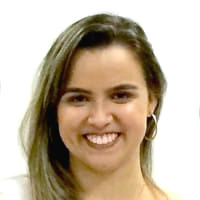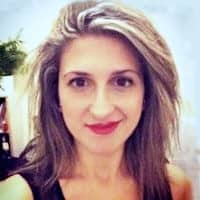What do you do your PhD in and what is your main research topic?
I’m Federica and I’m a PhD student in the Molecular Cardiology Lab (Prof. Steffen Just) at the Universitätklinikum Ulm. The main topic of our group is to describe, by in vitro and in vivo approaches, the events leading to the development of the heart and to use this information for the development of novel therapeutic options for heart diseases.
How did you get interested in this particular topic?
The heart is an extraordinary organ that can be considered the motor of the human body and for this reason, I think, it’s very important to try to know as much it’s possible about it. Especially because, in the world, cardiovascular disease is one of the major causes of death. Also, I started to be fascinated by the heart and its physiology during the study for my master degree. After my graduation, before I started to look for a position in the cardiology field, I worked for one year in a cancer biology lab and immunology lab. This experience helped me to not only acquire experiences in other fields, but also to understand what I really want to do in my life.
Tell me more about it.
My PhD project focuses its attention on the myofibrillogenesis, which is the process leading to the formation of adult muscular system. Disruption in this process can lead to skeletal and cardiac muscle diseases like the dilated cardiomyopathy (DCM). Since, up to now, the process of myofibrillogenesis is not completely understood and the function of some involved components needs still to be analyzed, in my project I‘m focusing the attention on some components to better understand the interaction pathway.
Is yours going to be a new approach?
No, it is not a new approach. It’s a “classical approach”; I’m using zebrafish as model organisms and I’m doing in vitro (cell culture) experiments.
Do you also collaborate with other research groups? If so, tell me about it.
At the moment I’m not collaborating with other groups.
What makes you get out of bed in the morning? What inspires you?
Every morning I wake up so grateful to the universe because I have the opportunity to do what I really love. For me, it would be very hard get out of bed to do a job I do not like.
A few years ago, during a meeting, a professor said “You can’t stop a biological process”, so this sentence inspires me every day because it means that we still have a lot to learn.
Where do you see yourself in 5 years?
Sincerely, I don’t like to do long term planning. I like to think that the world is so big and there are a lot of chances to take and experiences to live. Up to now, the only plans that I have are to get my PhD and be a good researcher. Where? I don’t know. Let’s keep in touch and I will let you know!
What makes life meaningful?
Knowing that every day there is something to learn and I will never finish learning.
What does the world need the most right now, in your opinion?
Right now people need to become aware of the fragility of the Earth. We should take care of our planet and preserve it for the next generations.
What does science need the most right now, in your opinion?
I think that today, science needs good communicators. Right now, scientists are not able to communicate with the “not scientists” in a clear and simple language, and for this reason people often misunderstand the “scientific messages”. Maybe it is time for scientists to learn how to communicate with the non-scientific community.








We are navigating recklessly toward our future using conceptions of time as primitive as a world map from the 14th century. …As a species, we have a childlike disinterest and partial disbelief in the time before our appearance on Earth.
Just as the microscope and telescope extended our vision into spatial realms once too minuscule or too immense for us to see, geology provides a lens through which we can witness time in a way that transcends the limits of our human experiences.